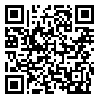Fri, Jun 6, 2025
[Archive]
Volume 18, Issue 2 (June 2021)
IJMSE 2021, 18(2): 1-9 |
Back to browse issues page
Download citation:
BibTeX | RIS | EndNote | Medlars | ProCite | Reference Manager | RefWorks
Send citation to:



BibTeX | RIS | EndNote | Medlars | ProCite | Reference Manager | RefWorks
Send citation to:
Sharudin R W, Md Azmi N S, Mat Shayuti M S, Ohshima M. Rheological Comparison of Silicone Rubber Crosslinking with Platinum Catalysts and Triethylamine, Methanol & Ethanolamine Solvents. IJMSE 2021; 18 (2) :1-9
URL: http://ijmse.iust.ac.ir/article-1-2076-en.html
URL: http://ijmse.iust.ac.ir/article-1-2076-en.html
Abstract: (16435 Views)
The control of silicone rubber’s viscoelastic properties namely loss factor, storage and loss moduli during crosslinking are crucial as its malleable behaviour changes differently under different conditions and affecting the final product. Hence, it becomes the objective of this study to investigate the rheological behaviour of silicone rubber cured under different formulation ratios with platinum catalysts and triethylamine, methanol & ethanolamine solvent. Measurement was conducted for the silicone rubber to crosslinker ratios of 2.5:7.5, 5:5, 7.5:2.5 and 10:1 at different elevated temperatures, and for the silicone rubber with triethylamine, methanol and ethanolamine at different angular frequencies. While the crossover of storage and modulus curve which signifies a gel point was not observed at higher ratios of platinum used across the temperature range of 25 – 100°C, it was found at 89°C and 95°C with the formulation ratios of 10:1 and 7.5:2.5, respectively. On the other hand, the crossover point was observed for silicone rubber at 100 s-1 for triethylamine, 3 s-1 and 100 s-1 for methanol, and 70 s-1 alongside 290 s-1 for ethanolamine. The presence of gel point indicates that crosslinking of silicone rubber successfully took place and this study proves that controlling the crosslinking behaviour was possible.
Keywords: silicone rubber, storage modulus, loss modulus, crosslink, glass transition temperature, rheological measurement
Type of Study: Research Paper |
Send email to the article author
| Rights and permissions | |
 |
This work is licensed under a Creative Commons Attribution-NonCommercial 4.0 International License. |







